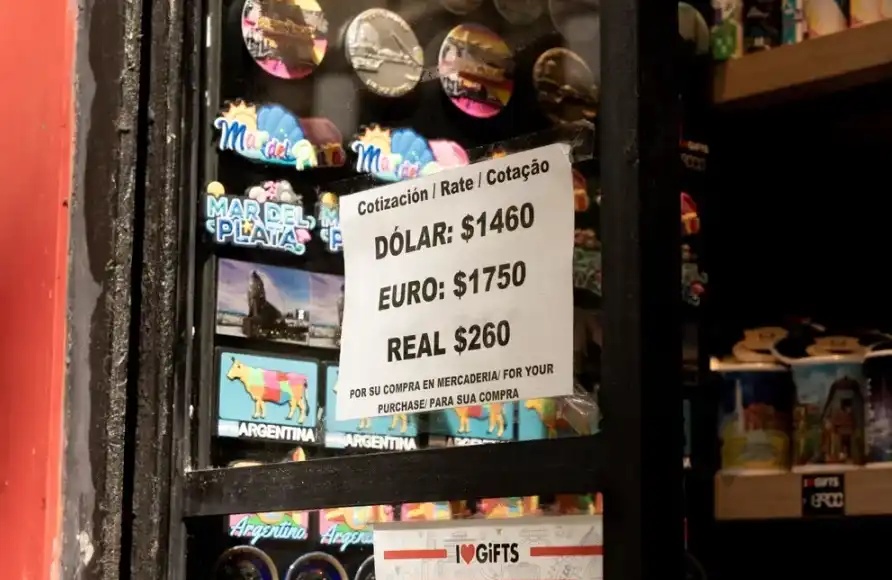Pump.fun's Dilemma: Share Erosion, Legal Charges, Gen Z Team Token Dump
Original Article Title: "The Three-part Fall of Pump.fun: Legal Hunt, Price Plummet, Trust Collapse"
Original Article Author: Zz, ChainCatcher
Described by three post-00s founders as "the most interesting place on the internet," their creation Pump.fun now sounds more like a dark joke.
In July 2025, this once star platform that disrupted the Meme track with its "one-click token issuance" model is facing an unprecedented trust crisis and market challenges.
The company is not only dealing with the erosion of its market share by competitors, significant drops in key data, and commercial pressures but is also deeply embroiled in legal troubles in the United States, facing charges of securities fraud and even RICO felonies. The story of Pump.fun began with fervor and is now undergoing the trials brought by that fervor.
The Tipping Point of Trust Crisis
In July 2025, a decision changed everything.
Pump.fun announced the issuance of its native token PUMP, valuing the company at a staggering $40 billion fully diluted. What should have been a milestone in the platform's development became a turning point that shook community trust.
Ironically, the platform's founders had previously gained credibility for the platform with the declaration that "every presale is a scam." Now, turning around to conduct a large-scale presale for PUMP, this move was seen by the community as blatant hypocrisy and betrayal.
Notable venture capitalist Jocy of IOSG Ventures publicly described it as a high-risk "Exit Liquidity event," believing that financing at a $40 billion valuation during a bear market for altcoins had severely overleveraged the future. Market concerns quickly materialized.
According to CoinMarketCap data, the token's price plummeted by 75% within hours of listing. As of the time of this publication, PUMP has dropped to 0.0024 USDT, a decrease of over 30% from its public sale price of 0.004 USDT. (BlockBeats Note: PUMP has since rebounded to 0.0027 USDT)

The underlying data is even more alarming: 340 whale wallets coordinated a sell-off, controlling over 60% of the presale allocation. According to on-chain data from user EmberCN of X, just two wallets related to the private sale rounds sold tokens worth $141 million, earning nearly $40 million in profits.

On social media, the atmosphere quickly shifted from euphoria to despair. "We thought this was an opportunity to change our fate, only to realize we were just fuel for their luxury yacht party." This sense of being deceived and exploited spread rapidly, severely damaging the community foundation on which Pump.fun relied.
Market Share Bloodbath, Business Model Under Pressure
The loss of trust is directly reflected in the dismal market data.
Competitor LetsBONK.fun is rapidly eroding Pump.fun's market position. According to Dune Analytics data, in just one month, Pump.fun's market share in the new coin issuance market plummeted from 90% to 24%, while LetsBONK.fun surged from 5% to 64%. Behind this are two contrasting philosophies in a showdown.
Pump.fun's model is centralized pumping, while LetsBONK.fun's success lies in allocating 58% of platform revenue to buy back and burn ecosystem tokens, building a strong value and trust flywheel through real benefits sharing.
Faced with adversity, as reported by CoinCentral, the team announced the use of tens of millions of dollars for a large-scale buyback, but was ridiculed by the market as "using retail investors' money to buy back at a high price." Analysts point out that the project team sold at $0.004 and then bought back at $0.0064 using platform revenue, essentially paying a 60% premium for market cap management.

While this move temporarily boosted the token price, it failed to restore the severely damaged value foundation and market confidence. Meanwhile, the global regulatory network is tightening.
In December 2024, following a warning from the UK Financial Conduct Authority (FCA), Pump.fun was forced to block its 9% UK user traffic.
This is not an isolated incident but rather a regulatory scrutiny inevitable for its "viral" growth model. Pump.fun is caught in a severe negative feedback loop: intensified competition erodes revenue, declining revenue weakens buyback capability, price drops damage confidence, ultimately leading to accelerated user attrition.
RICO on the Hunt
A more serious challenge comes from a legal standpoint. Initially, multiple class-action lawsuits alleged that all Meme coins on the platform were unregistered securities. Law firms like Wolf Popper LLP put forward the "co-issuer" theory, arguing that the platform deeply engaged in the creation, trading, and liquidity of tokens and was not a neutral technology provider.
In July 2025, the legal battle escalated dramatically. According to the amended Aguilar case document, the plaintiff added charges based on the Racketeer Influenced and Corrupt Organizations Act (RICO)—a law typically used to combat organized crime.
The scope of the defendants also expanded, with the Solana Foundation, Solana Labs, and even its co-founders being named as the "architects, beneficiaries, and conspirators" of the fraud. The impact of this move goes far beyond the project itself, directly questioning the responsibility boundary of the entire Solana ecosystem.
As the underlying infrastructure, does Solana have a duty to oversee or supervise the star projects within its ecosystem? This lawsuit has made all public chain platforms realize that their relationship with ecosystem projects may be far more dangerous than imagined. The underlying behaviors of the RICO charges include telecommunications and securities fraud, unlicensed money transmission, and assisting money laundering.
One of the most explosive charges is that the North Korean hacker group "Lazarus Group" had used Pump.fun to issue a Meme coin to launder the funds stolen in the Bybit hack.
Governance Flaws, Insider Threats
However, what was most shocking, perhaps, was the betrayal from within.
On May 16, 2024, the platform was attacked, and around $1.9 million was stolen. However, the attacker was not an external hacker but a disgruntled former employee.
The former employee, named "Stacc," openly admitted responsibility on social platform X, with motivations pointing towards personal retaliation and disdain for the "awful bosses." Technical analysis showed that the attack stemmed from an abuse of administrative privileges rather than a smart contract vulnerability.
The employee used their privileged position to illicitly gain withdrawal authorization, swiftly bought up the supply of multiple tokens through a flash loan, ultimately siphoning off the initial liquidity that should have entered the DEX. While publicly claiming to address the Meme coin rug pull risk, the internal "backdoor" had long been wide open for the disgruntled employee.
This event was like a mirror, reflecting Pump.fun's astounding neglect of internal security and corporate governance amidst its rapid growth.
From Resolving Rug Pulls to Its Own "Rug Pull"
The story began in early 2024 during the global "Solana Meme Coin craze." Countless developers and speculators flocked to the Solana ecosystem, eager to create or capture the next 100x coin. However, the process of creating a token and providing initial liquidity pools (LPs) was both expensive and complex, often requiring thousands of dollars in costs and professional knowledge, a barrier that kept numerous creative and grassroots players out.
The protagonists are three post-00s founders: CEO Noah Tweedale (21), CTO Dylan Kerler (21), and the COO using the alias Alon Cohen (23). They keenly identified this core pain point, claiming to solve the rug pull risk of meme coins, with the vision of building the most entertaining place on the internet.
Pump.fun emerged in January 2024, with its core innovation being "one-click token issuance," simplifying the previously complex process to just a few clicks and a few dollars. This disruptive innovation brought about explosive growth.
However, this talent quickly turned into a speculative tool. The entire business model amplified speculative emotions. The $40 billion valuation presale of the PUMP token took this speculation to its peak.
A disregard for business rules was prevalent throughout. They had previously gained trust by taking an anti-presale stance, only to turn around and launch a large-scale presale. When faced with FCA regulation, they chose to cut ties with the UK operating entity. The CEO denied that Pump.fun was a UK company, while the COO argued that employment relationships do not represent ownership. These actions appeared calculated rather than ignorant to the public.
A combination of technical genius, speculator, and rule-breaker paints a complex picture of Pump.fun's complete trajectory from a rocket-like rise to a rapid fall. The young founders never anticipated that this project aimed at bringing fun would thrust them into a complex legal and business whirlpool.
Standing at a Crossroads
Pump.fun is currently at a crossroads. Pending lawsuits, declining market share, and damaged user trust have plunged it into a crisis.
This seems to be another cruel enactment of "DeFi Darwinism": a species rapidly thriving due to its unique adaptability (low barriers, high virality) but eventually facing challenges because it cannot evolve the ability to cope with a complex environment (regulation, trust, security).
For the entire crypto industry, Pump.fun's plight raises a serious question: to what extent should a platform be held responsible for the behavior within its ecosystem when innovation straddles the legal boundary?
As regulatory scrutiny shifts from centralized exchanges to more complex DeFi applications, the next Pump.fun may already be in the making.
And for every surfer, the ability to distinguish between fun and traps has never been more critical. This grass-to-grace-to-fall-from-grace story may be setting the stage for the next chapter in the crypto world.
Welcome to join the official BlockBeats community:
Telegram Subscription Group: https://t.me/theblockbeats
Telegram Discussion Group: https://t.me/BlockBeats_App
Official Twitter Account: https://twitter.com/BlockBeatsAsia


 Forum
Forum Finance
Finance
 Specials
Specials
 On-chain Eco
On-chain Eco
 Entry
Entry
 Podcasts
Podcasts
 Activities
Activities
 OPRR
OPRR









